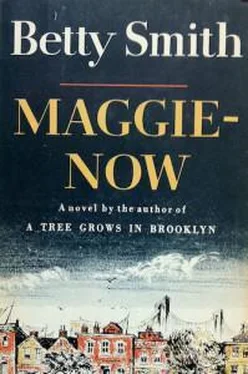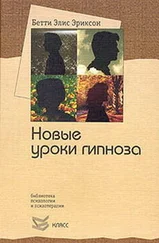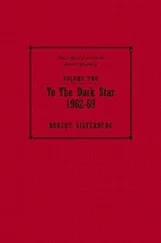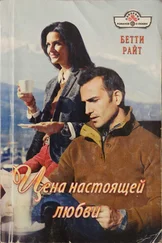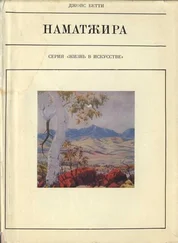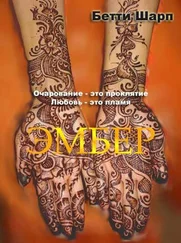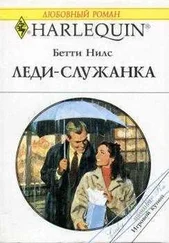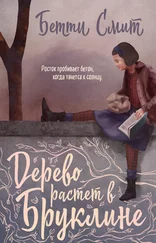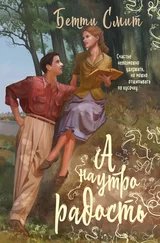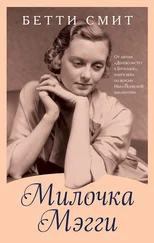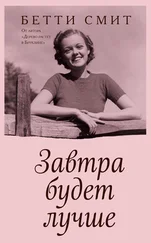Бетти Смит - Maggie-Now
Здесь есть возможность читать онлайн «Бетти Смит - Maggie-Now» весь текст электронной книги совершенно бесплатно (целиком полную версию без сокращений). В некоторых случаях можно слушать аудио, скачать через торрент в формате fb2 и присутствует краткое содержание. Жанр: Проза, на английском языке. Описание произведения, (предисловие) а так же отзывы посетителей доступны на портале библиотеки ЛибКат.
- Название:Maggie-Now
- Автор:
- Жанр:
- Год:неизвестен
- ISBN:нет данных
- Рейтинг книги:3 / 5. Голосов: 1
-
Избранное:Добавить в избранное
- Отзывы:
-
Ваша оценка:
- 60
- 1
- 2
- 3
- 4
- 5
Maggie-Now: краткое содержание, описание и аннотация
Предлагаем к чтению аннотацию, описание, краткое содержание или предисловие (зависит от того, что написал сам автор книги «Maggie-Now»). Если вы не нашли необходимую информацию о книге — напишите в комментариях, мы постараемся отыскать её.
Maggie-Now — читать онлайн бесплатно полную книгу (весь текст) целиком
Ниже представлен текст книги, разбитый по страницам. Система сохранения места последней прочитанной страницы, позволяет с удобством читать онлайн бесплатно книгу «Maggie-Now», без необходимости каждый раз заново искать на чём Вы остановились. Поставьте закладку, и сможете в любой момент перейти на страницу, на которой закончили чтение.
Интервал:
Закладка:
"That was the only time he ever took me out. Well, there came times after that night when I felt I didn't like him very much. When I got that feeling, I'd go and take the combs out of the tissue paper and hold them and I'd feel the same love I felt that night when he took me to the concert."
After the funeral, The Missus took her insurance money and went to Boston to live cut her days there with Henrietta, her widowed sister. Patsy W1S sorry to see her go. This contrary man really loved his mother-in-law.
"She's like me own mother was," Patsy told his wife.
"She sees no fault in me."
~ 7~] Well, after the reform administration cleaned out all the Tammany grafters, they put in their own grafters. Once more, tithes were collected from the brothels. Once again, small storekeepers paid "insurance" against plate-glass windows being broken. Again, the poor Jewish merchants whose pushcarts lined both side of the curbs on Moore, Siegal and McKibben Streets, paid protection "rent"
against their pushcarts being overturned and the merchandise trampled in the dirty gutters. The rent was fifty cents a week but often the grafters settled for a quarter.
The citizens didn't like the new administration. They stood around on corners and in the saloons and sat on where grass should have been in the public parks and knocked the reformers.
"It stands to reason Where there is politics, there's graft.
Right? "
"Right."
"So we expect graft Rio matter what party's in. Right?"
"Right. ' "But when TammanN collected graft we got something back `'ut of its' "That's right."
"Yeah. Like they ran block parties for us and paid the band."
"And they ran free excursions up the Hudson and everything on the house."
"Sure."
'Take me: The time I was laid Up with my broken leg.
Why, they sent over a basket of groceries every week."
"Take this guy: I forgot his name. They paid to bury him when he died with no insurance and his wife divas afraid she'd have to plant him in Potter's Field."
"Why sure! Many's the ton of coal they gave me that hard vinter when I couldn't get work."
"Well, this here party what's in noNv takes graft but what do we get out of it?"
"Nothing. Just plain nothing.' So when the time came, these complaining citizens went to the polls and voted out the reform parts and got the old ticket bac in again. And some of them were so anxious to get Tammany back in again that they voted two or three times the way they had been taught to do by the Machine.
L~? 1 Well before this time, Patrick Dennis Moore put away all his dreams and hopes. He hated his job but wouldn't dare give it up with no other work to be had. He was grudgingly grateful that he was working for the city and couldn't be laid off because times were hard. He realized, nova, that he would always be a street cleaner. That was all he had to look forward to. He would always have to live in the shabby house on Ewen Street.
His last dream had died out when his mother-in-law went to live with her sister in Boston- instead of with him and Mary and took all her insurance motley with her.
~ CHAPTER TWELVE >~
MARY kept the upstairs rented and banked the rent money and used it throughout the years to keep the taxes and the interest on the mortgage paid up and sometimes she was able to pay a little on the principal. She was liked and respected on Ewen Street (which, for some reason, was now called Manhattan Avenue). The neighbors referred to her as "that refined schoolteacher what's married to that slob yore know. The street cleaner? "
Mary became friends with Father Flynn, the priest who had performed her marriage ceremony and never criticized her and Patsy for having a civil ceremony first. One time when his housekeeper took a week off to visit a married daughter in Albany, Mary went to the parish house every day and cooked the priest's food and laundered his collars and mended the torn lace on his alb. Thereafter, she visited him once in a while or he came to her home. They exchanged opinions on the news of the day and analyzed the rapid changes that were taking place that would eventually change the once dreamy village of Williamsburg into a city slum.
They had something in common in that both were strangers in the neighborhood, she having come from the prosperous and fashionable Bushwick set tion, and he from the Middle West.
~ ~9 1 Father Flynn had been born and reared in a small town in Minnesota. He had been educated in Midwestern schools. At college he had excelled in sports: football, baseball, basketball, hockey and especially skiing. He had been popular with faculty and classmates.
The time came, while he was still young, to put aside his dearly loved sports and his no less dearly loved contemporaries and, as an ordained priest, to take up his life and his work in an alien place. His Bishop had said: "You'll have your work cut out for you there." It was true.
It was a swarming neighborhood. Fifty per cent of the population were Irish and Gcrman with a few English and Scottish families. l here was a neighborhood saying that the Irish and the Germans "got along good together."
Evidently this was so as there was a great deal of intermarriage between the Germans and the Irish.
The Jews and Italian; were called foreigners by the Irish and Germans, presumably because they were not Nordic.
There were some Dutch families left over from the time when Brooklyn had been called Breuckelen. They were classified with the Germans. Because there vrere some similarities in the languages, Germans were called Dutchmen. Then there were Poles, Hungarians, Swedes, some Chinese who lived among bundles of laundry in rooms back of one-windowed stores, sloe-eyed Armenians and swarthy Greeks.
There revere even some Indians. They were of the Canarsie tribe and they made their homes in run-down, abandoned, onewindowed stores. The ot'Tier nationalities looked down on them. No one believed they were Indians because they dressed like everyone else and did not wear feathers in their hair. They were called gypsies.
There divas a small colony that was hard to classify.
They had their own small neighborhood within the larger neighborhood. All the men worked in a one-story factory, where, stripped to the waist, they stood iTI lurid firelight blowing their lives into long tubes with a glob of molten glass on the end, to make green beer bottles. They wen loosely classified as Bohemians and referred to as Bobunks.
To add to the confusion, the nationalities were split up among
~ y 1
themselves. The Jews, although of the same race and religion, had the patina of diverse nationalities. There were English Jews and German Jews; Russian Jews, Polish Jews and Armenian Jews. There were dark-haired, dark-eyed nervous Germans and placid, flaxen-haired, blue-eyed Germans. Some were Catholic, some were Lutherans. There were Protestant Irish and Catholic Irish and they were continually breaking each other's heads over Irish freedom and religion and opinions of Great Britain.
Also, there were the much-feared Sicilian Italians, who were always making vendettas against other Italians the aftermath of some internecine warfare back in Italy's history. Many a kid in the neighborhood was kept in line by his parents telling him that the Blackhand would get him if he didn't watch out.
There were many churches: Roman and Greek Catholic and Russian Orthodox. There was a Polish Catholic church where the priest spoke Polish. There was the high church of England and the low church. There were Methodists, Lutherans, Presbyterians, Baptists, Unitarians and many other sects. All scattered over Brooklyn.
Читать дальшеИнтервал:
Закладка:
Похожие книги на «Maggie-Now»
Представляем Вашему вниманию похожие книги на «Maggie-Now» списком для выбора. Мы отобрали схожую по названию и смыслу литературу в надежде предоставить читателям больше вариантов отыскать новые, интересные, ещё непрочитанные произведения.
Обсуждение, отзывы о книге «Maggie-Now» и просто собственные мнения читателей. Оставьте ваши комментарии, напишите, что Вы думаете о произведении, его смысле или главных героях. Укажите что конкретно понравилось, а что нет, и почему Вы так считаете.
